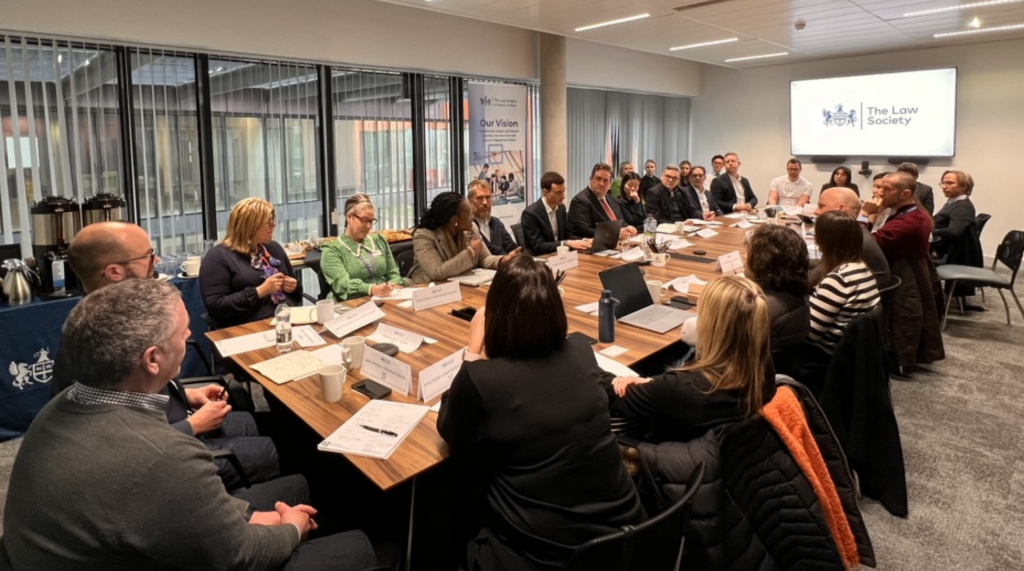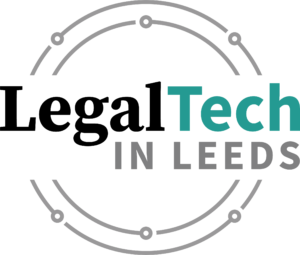 On Wednesday 7th February 2024, The Law Society hosted a roundtable at Leeds Beckett University which focused on the role of Generative AI on the Legal sector. The event was attended by Julian Wells, Director at Whitecap, who has been actively involved in this field via the LegalTech in Leeds initiative which Whitecap leads.
On Wednesday 7th February 2024, The Law Society hosted a roundtable at Leeds Beckett University which focused on the role of Generative AI on the Legal sector. The event was attended by Julian Wells, Director at Whitecap, who has been actively involved in this field via the LegalTech in Leeds initiative which Whitecap leads.
The event was hosted by the Leadership & Management Section of The Law Society, and was chaired by current President, Nick Emmerson, who is a former president of Leeds Law Society. Attendees were drawn from a diverse range of organisations including: Addleshaw Goddard, DAC Beachcroft, DLA Piper, Government Legal Department, Leeds Beckett University, Leeds Building Society, Leeds Junior Lawyers Division, Leeds Law School, Leeds Law Society, Lupton Fawcett, Page White & Farrar, Ridley & Hall, rradar, Sintons, Stewarts, University of Law, Weightmans, and Whitecap Consulting.
There were three main themes to the discussion:
- Embracing change
- Education and training
- Looking to the future
Embracing change
The theme of the comments was that AI is much discussed but not widely understood. There is a requirement for widespread education across the legal sector, across firms of all sizes. During the course of the discussion we heard examples of how law firms are seeking to improve understanding and awareness of AI and the use cases it can help with.
AI has the potential to help automate basic functions such as attendance notes, reviewing drafts, and reviewing emails and documents, but also to play a role in more advanced and complex legal processes and decision making. For example, AI can open up access to justice to a wider range of consumers and businesses, which would help to address a well known and important issue for the legal sector and the economy.
Clearly there is investment required in order to acquire the AI capability to deliver the benefits of increased efficiency. The combination of AI and humans is where there is real value-adding benefit to be found. Nick Emmerson spoke of the ‘unbundling of legal services’ – breaking down legal processes into tasks that can be delivered by technology and those that require human involvement by a lawyer.
Issues with the effective implementation of AI in the legal sector include: client consent requirements, risk assessment of specific AI-enabled activities, liability, understanding how technology really works, and knowing where data is stored. The data that feeds AI tools can be drawn from a wide range of existing sources – the challenge is to ensure the data being drawn upon is of acceptable quality.
- Key question for the legal sector: If AI can improve efficiency, will this result in lower prices for the consumers of legal services?
Education and training
It was highlighted that there is a big difference between knowledge and understanding.
The use of Generative AI can help gather knowledge, but the outputs do not necessarily demonstrate understanding. Universities and other education providers need to help students to understand how to use emerging tech tools such as AI, but also to ensure that the core skills required in the profession are still taught. There is tension between maintaining appropriate academic conduct and encouraging the use of AI.
A group of law students attended the event and contributed to the discussion, sharing their experiences and perspectives on how AI can be used in the legal sector. The benefits of AI need to be balanced with the need for individuals to learn the fundamental skills required to do their job, such as the ability to analyse information. AI can get you to the answer, but you don’t experience the process.
- Key question for the legal sector: How do we preserve the skills of lawyers?
Looking to the future
AI can help unlock challenges like access to justice. We heard how University of Law and Calls9 have developed an AI chatbot that helps improve access to justice, using a triage process that subsequently removes issues for the end client in terms of language barriers, writing ability, and communication.
The point was made that many of the organisations involved in tackling issues such as access to justice are SME law firms, and these firms are not of a scale that they will have expert in-house technology resources in their workforce. Small firms have limited resources and cannot invest in innovation, and need guidance and support to understand how best to use technology.
Despite this, smaller firms see the advancement of technology by larger firms as an opportunity rather than a threat, as there will always be demand for a more human centric service.
- Key question for the legal sector: Could we end up with a two tier legal profession, split by those who can afford to invest in advanced tech like generative AI and those who cannot?
It was an interesting and informative session, and it also presented an opportunity for us to share the story to date of LegalTech in Leeds, and outline how we are creating a platform via which issues such as those raised at the roundtable can be discussed by the LegalTech community in the region. Some of our most popular events have been focused on AI, but we cover many other topics around our core objectives of: accelerating the digital transformation of the legal sector, enhancing access to justice for consumers and businesses, and supporting tech entrepreneurs in the legal sector.
Via our work on LegalTech in Leeds, Whitecap looks forward to continuing to play a role in facilitating the development of the LegalTech sector through the programme of events and related activities that we coordinate. This year’s LegalTech in Leeds conference takes place on 18th April and is set to continue to be the largest regional LegalTech conference in the UK. Find more information here.
